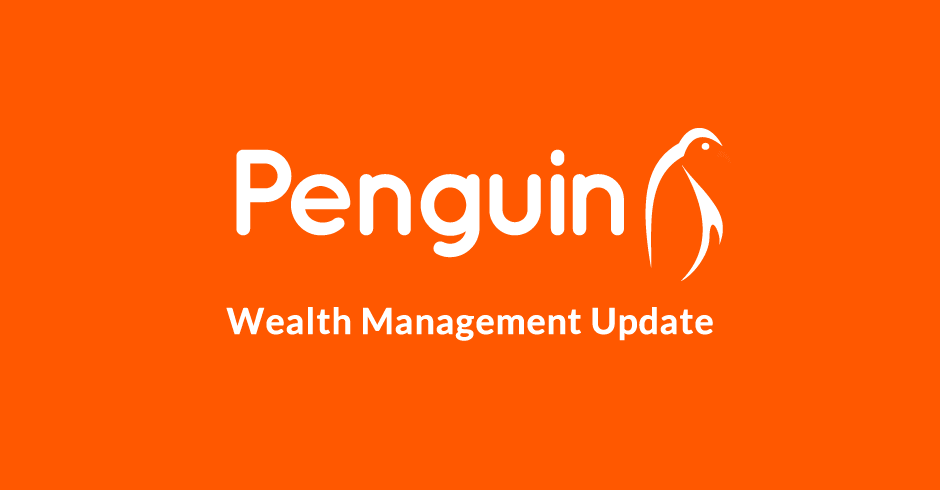Wealth Management Update – January 2018
Wealth Management January 2018
NS&I passes on rate rise
National Savings have passed on the full interest rate rise to their clients, increasing the interest rates on their products by 0.25%.
| NS&I account | Balance | Previous rate | New higher rate |
| Direct ISA | £1+ | 0.75% tax-free/AER |
1.00% tax-free/AER |
| Direct Saver | £1+ | 0.70% gross/AER |
0.95% gross/AER |
| Income Bonds | £500+ | 0.75% gross/AER |
1.00% gross/AER |
| Investment Account | £1+ | 0.45% gross/AER |
0.70% gross/AER |
| Junior ISA | £1+ | 2.00% tax-free/AER |
2.25% tax-free/AER |
While this is the right thing to do, what does it mean for those who have NS&I products? Although it may seem that higher returns will be received in the long run, when you take inflation into account, which is currently at 3%, all of these products are still operating at a loss. The best-case scenario is a loss of 0.75% on the Junior ISA and the worst case is a loss of 2.3% on the Investment Account.
This is not to say that NS&I investments are not suitable or appropriate for those with particular circumstances, but it does highlight the fact that even when interest rate rises are passed on to consumers it isn’t always the good news it is made out to be.
For those looking for real growth over the long term, investment in equities should definitely be considered. But, remember – you should always consult an Independent Financial Adviser before arranging any type of investment to make sure it is suitable for you.
MiFID II has landed
No, this is not the new NASA spaceship but is actually an acronym (we love an acronym) for the Markets in Financial Instruments Directive, which has been introduced with new rules that will change the way investors’ money is managed.
The changes come from Europe and aim to improve transparency in investment markets. The directive basically requires that everything must be stated more clearly, including such things as costs, charges, fees and explanations, and should follow a more standard approach to ensure communications are more consistent.
The directive came into effect on 3rd January 2018. It should not have much effect on clients whose funds we are currently managing through our chosen platform providers. You should have received a written communication regarding the changes from the providers, but there is no action to take as we have been working hard backstage on your behalf to make sure our systems are all up to date and that you have to do as little as possible.
The emphasis of the new directive is ultimately to support you as the investor and to ensure that the products recommended fulfil your needs and do not prioritise incentive-based products, and this is something we fully support.
Auto enrolment age to be lowered
The qualifying age for automatic enrolment into an employer’s pension scheme is currently 22 years, but a new proposal plans to reduce the age to 18 by the mid 2020s.
The change will affect about 900,000 young people and will encourage higher savings in preparation for the younger generation’s retirement. The aim is to create a “habit” of saving that will stay with individuals throughout their working life.
But is the mid 2020s soon enough? This risks leaving a whole group of young people behind when it comes to pensionable savings and there have been calls to bring this new proposal forward. We think the original struggle and disorganisation of auto enrolment has meant that those in charge want to be fully prepared for any further changes to the scheme.
Whilst there are positives to this move, if you are a business owner it will mean an increase in pension costs, as it did when the auto enrolment scheme was introduced originally. Something to keep in mind over the coming years.
Toys R Us in trouble?
The giant toy superstore Toys R Us has run into difficulties with their pension scheme and this is putting the whole organisation at risk.
They have been ordered by the Pension Protection Fund (PPF) to add £9m to their pension fund pretty sharpish if they are to progress with a restructuring plan. As part of this plan they have had to close 26 stores across the country, including our Cardiff one, resulting in a loss of 800 jobs. Failure to replenish pension funds could put all their staff at risk of redundancy, a total of 3,200 across all their stores.
This situation is a real priority dilemma. One course of action will affect their current employees, the other will affect their previous employees who are now retired; both categories of employee are expecting to use this income as a large portion of their retirement funds.
Increasingly we are hearing reports of underfunded pension schemes and, for businesses, this highlights the vital importance of managing and running a pension scheme for your employees and how critical this is for your business.
It also highlights customer awareness: do you know the financial situation of your employer’s pension scheme? Do you know if it is struggling or is in a good position? It is a good idea to make yourself aware of these things – after all it may well form a large part of your retirement plan.
Bitcoin bubble
Bitcoin, for those of you who don’t know, is a new currency that was created in 2009 by persons unknown. Transactions are made with no middle men – meaning, no banks! There are no transaction fees and there is no need to give your real name.
Sounds bizarre, right? That’s because it is!
Bitcoin has been causing a stir recently; with hacking attacks, thefts and bankruptcies it is no surprise that it has been all over the news. The currency is gaining momentum, and professionals are starting to look at it a lot more seriously (but not too seriously). Recent movements – soaring increases followed by dramatic falls (10% in a few hours) – mean that investing in Bitcoin is a volatile endeavour, but one that brings the thrills that many go investing for, with far less hassle than traditional investments. For the time being, many are making money, but will this continue? And what exactly do they achieve with these gains?
It is largely thought that, as Bitcoin can only be used in a handful of establishments, is difficult to convert to sterling and is technically a merely speculative currency, the interest in it will die down. There are certainly strong concerns about the risks involved – it is not backed by any government or central bank and so there is no fall back – and some professionals believe that the digital currency could pose a financial stability issue worldwide.
Bitcoin is so far from every day use that it is not even worth considering as an investment. It is not comparable with standard investments and is currently in a bubble – one that will eventually burst. While all the media attention is on how well Bitcoin is doing and the gains that are being made, it is easy to forget that there is the potential to lose everything and, with something as risky as Bitcoin, that could happen overnight. So, let’s all kick ourselves for not taking the risk eight years ago, and move on.
Millennials, saved by inheritance
You may have heard the term “millennial”, referring to those currently aged 17 to 35. The millennials are regularly blamed for not accumulating their own assets. The millennials themselves blame their lack of assets on not having guaranteed pensions, tricky financial times and student debt.
A minefield of a discussion if ever there was one, and one that could go on forever.
You may have millennials in the family, whether they are children or grandchildren, and they will surely tell you that they were led to believe that if they worked hard and were ambitious then they would get a good job and be able to have all the things they ever wanted, such as owning their own home. However, in the time it took them to do this, even before they had begun, times had started to change and those things became increasingly difficult to achieve.
Finally, they may be able to get some of what they want, but not until the age of 61 (on average). There is projected to be an “inheritance boom”, the biggest since the Second World War ended. This means that over the next 20 years, millennials will start to inherit the largest sums ever, but at 61 it may come too late to solve the housing and wealth struggles that they will face earlier in life.
We must remember that this is speculation and not something to be relied on. With the rising cost of care and the fact that we are all living much longer, the inheritance windfalls that millennials would be expecting may never materialise.
When considering inheritances, the best way to make sure your children or grandchildren get the money you want them to have is to gift it to them while you are still alive. And it most certainly should be through a trust, to protect it from things such as divorce, bankruptcy and long-term care.
Notes on Brexit
At last we are beginning to see something that looks like progress! Whether or not the detail sits well with either side of the Brexit divide here at home, the EU have agreed that we are now able to move on to the next stage of negotiations. The next stage is not yet the vital detail for future trade relations but focuses on the transitional arrangements, which are expected to be settled in the first quarter of 2018. Negotiations on the trade framework are expected to begin in March.
The joint report on the first stage clearly states that it reports progress towards a settlement rather than a settlement itself – or, to coin a phrase, “Nothing is agreed until everything is agreed”. It covers citizens’ rights, allowing reciprocal rights for EU & UK citizens based on “rights derived from Union law and based on past life choices”; the financial settlement, basing the final calculation on an assumption that no member state should pay more or receive less as a result of the UK’s withdrawal; and the Irish border, focusing on upholding the Good Friday Agreement and avoiding a hard border between Ireland and Northern Ireland.
Book of the month
As we begin the New Year it is always good to read something inspirational and uplifting and this month’s book of the month really fits the bill. The little big things by Henry Fraser is a biography that shares his life, how it was crushed by a careless swimming accident and rebuilt through guts and determination.
The book is relatively short (176 pages) and easy to read. It lends itself to nights when the TV can be turned off, and something more worthwhile needs to be done. Reading Frasers’ story will both inspire and uplift you and perhaps even give you insights into life and its meaning. What a way to start the day.
This book is the first of 12 that we will recommend this year. As in previous years the books will be a mixture of financial, non-financial and predominantly non-fiction; but important or uplifting novels will also be included (praise for our recommendation a few years ago The Bees is still remembered). So why not make it a goal for the year to read each one.
Best Savings Selections
Top Three Cash ISA’s
Please check with the terms and conditions before opening any account. If in doubt consult with your financial adviser directly as the above are for information only. Source: Moneyfacts Magazine January 2018 Edition |









